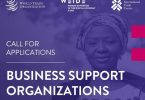Representative, D1 at United Nations High Commissioner for Refugees (UNHCR). Please ensure you read the job requirements before applying for this position.
United Nations High Commissioner for Refugees (UNHCR) was created in 1950, during the aftermath of the Second World War, to help millions of Europeans who had fled or lost their homes. We had three years to complete our work and then disband. Today, over 65 years later, our organization is still hard at work, protecting and assisting refugees around the world.
We are recruiting to fill the position below:
Job Title: Representative, D1
Reference ID: JR2204679
Location: Abuja
Employment Type: Full Time
Hardship Level: C
Grade: DI1
Staff Member / Affiliate Type: Professional
Organizational Setting and Work Relationships
- As the High Commissioner’s senior representative in the country, the Representative provides managerial leadership and oversight to ensure UNHCR’s effective performance in the country of her/his assignment. The incumbent usually manages a budget of USD 6 million and above.
- Reporting to the Director of the Bureau, the Representative is responsible and accountable for translating organizational and Bureau-wide objectives and policies into effective programmes.
- Through a continuous process of situational analysis, the Representative works with his/her team to identify strategic objectives and develop coherent, consistent and effective responses to the challenges faced.
- He/she is responsible for ensuring the adequate provision of technical support and guidance to the office to enable them to fulfil their accountabilities, including those outlined in the Terms of Reference of UNHCR offices as well as the Age, Gender and Diversity Accountability Framework.
- The Representative works to ensure that UNHCR is widely perceived as an effective and trusted partner.
- S/he is responsible for creating effective networks, relationships, partnerships, and synergies with governments, NGOs, relevant regional political and other fora, civil society, persons of concern and other key strategic partners and actors.
- He/she lends visibility to important strategic issues, promotes concerted action and the commitment of sufficient resources and expertise to address important matters of concern to UNHCR. UNHCR is well integrated into the UN Resident Coordinator System.
- In a complex and demanding political and operational environment, the Representative strives to build a dynamic and sufficiently capacitated team.
- S/he devolves appropriate authorities, facilitates the sharing of expertise and best practice and creates a climate of collaboration, which aims to empower and motivate colleagues to approach challenges with insight and innovation and to work toward achieving measurable and effective results.
- The Representative is responsible to ensure a vibrant Multi-Functional Team approach is established and employed at different stages of the operations management cycle, including in programme monitoring, and engaging the participation of relevant functions within the operation.
- S/he has a responsibility to inform the Bureau and other relevant parties at Headquarters of key political and operational developments in a timely manner.
- The comports and actions of the Representative must always reflect the core values and principles embodied in UNHCR’s mandate. A failure on the part of the Representative to adhere to these standards would have negative implications for UNHCR’s credibility, operations and, ultimately, the protection and well-being of persons of concern to the Office.
- All UNHCR staff members are accountable to perform their duties as reflected in their job description. They do so within their delegated authorities, in line with the regulatory framework of UNHCR which includes the UN Charter, UN Staff Regulations and Rules, UNHCR Policies and Administrative Instructions as well as relevant accountability frameworks.
- In addition, staff members are required to discharge their responsibilities in a manner consistent with the core, functional, cross-functional and managerial competencies and UNHCR’s core values of professionalism, integrity and respect for diversity.
Duties
Strategic Direction:
- Stay abreast of the challenges posed by the local political context.
- Manage a consultative process within the country operations and with external partners.
- Develop and implement a comprehensive communications strategy that generates political and financial support for UNHCR’s operations. Mobilize financial support for UNHCR corporate priorities as well for country specific projects.
Operations:
- Implement a results-oriented approach, engaging a robust Multi-Functional Team, for assessing, designing, delivering and monitoring the country operation.
- Ensure that the protection strategy is fully integrated into the country operations plan and that necessary resources are allocated to it.
- Ensure the country operation’s adherence to UNHCR’s policy on Age, Gender and Diversity Mainstreaming (AGDM).
- Ensure the country operation plans are consistent with the regional and global strategic priorities; manage a participatory process, with stakeholders, to apply UNHCR’s standards and indicators in assessing and measuring the performance of the country operations.
- Ensure the engagement of UNHCR in the UNCT, UN common programming, planning and funding activities and to actively contribute in the establishment of the CCA/UNDAF and the consequent joint implementation activities.
- Participate in the Cluster approach, ensure UNHCR’s Cluster Lead role and implement other IASC and inter-agency/UN policies.
- Ensure that risks to the operation’s objectives are regularly assessed, priority risks are identified and risk treatments for the priority risks form an integral part of the operations plans.
- Promote accession to the Convention and Protocol and ensure the application of protection standards in the treatment of persons of concern especially women and children.
- Ensure persons of concern, especially women and children, have access to relevant information; ensure that cases of sexual violence and abuse against girls and boys are reported and dealt with expeditiously.
Resource Management:
- Ensure that staff and financial resources are commensurate with operational objectives.
- Ensure effective and efficient management of resources within the rules and procedures of UNHCR.
- Establish and manage local administrative mechanisms such as a Local Contracts (or Purchasing) Committee, Local Asset Management Board and APPC.
- Manage a process of recruitment, assignment and reassignment of local staff for the country operation, in accordance UN/UNHCR rules and procedures.
- Where necessary, identify the most appropriate affiliate workforce and optimize its use.
- In coordination with the Global Learning Centre, ensure that the learning needs of UNHCR’s workforce in the country are identified, assessed and addressed.
- Exercise effective managerial oversight, direction, guidance and support and conduct regular performance appraisals and coaching.
- Ensure local compliance with UNHCR’s human resources (HR) policies including on gender, disabilities, diversity, ethics and HIV/AIDS.
Security:
- In close collaboration with the Designated Official (DO), UNDSS and UN country team/Security Management Team (SMT), gather and analyse information on the local security situation and play an active role in the inter-agency security and contingency planning processes.
- Enforce local compliance with UNHCR’s global protection, programme, finance and human resources and security policies and standards.
- Negotiate and sign local agreements with implementing and operational partners.
- Authorize payments as per the organization’s Delegation of Authority Plan (DOAP) and in accordance with UN/UNHCR rules and procedures.
- Modify operational projects and reallocate funds, within the approved budgets and in respect of donor earmarking.
- Ensure that appropriate security measures are in place to protect staff, and that the country operation complies with UN MOSS/MORSS staff security rules, guidelines and procedures.
- Represent UNHCR in the UNCT/Humanitarian Country Team and other inter-agency fora.
- Decide on the country strategy and priorities, country operations plans, and approve the country operation’s protection strategy.
- Perform other related duties as required.
Minimum Qualifications
- For D1 – 17 years relevant experience with Undergraduate Degree; or 16 years relevant experience with Graduate Degree; or 15 years relevant experience with Doctorate Degree.
Field(s) of Education:
- Business Administration, International Relations, Law, Political Science, Social Science, or other relevant field.
Certificates and/or Licenses:
- HCR Learning Prog;
- HCR Managing Operatns Lrng Prg;
- HCR Protection Learning Prg.
Relevant Job Experience:
Essential:
- Extensive knowledge of UNHCR operations and services. Extensive knowledge of UNHCR operations and services.
- A high level of skill in management of broad programmes, political decision making and negotiating, as well as demonstrated tolerance to frequently changing and highly charged situations.
- Ability to manage for results: translates strategic aims into achievable plans, with established priorities, monitors them, making periodic adjustments as required.
- Ability to effectively represent UNHCR at the senior level in internal and external meetings and to build strong relationships with clients.
- Ability to lead strategic planning, change processes, results-based management and reporting.
- Ability to lead formulation, oversight of implementation, monitoring and evaluation of operations.
Desirable:
- Knowledge of geo-political realities and their socio-cultural implications.
Functional Skills:
- MG-Client Relationship Management
- MG-Change Management
- MG-Field Operations Management
- MG-Political Decision Making
- MG-Country/Regional Office Representation
- UN-Analysis of geo-political realities and their socio-cultural implications.
- PG-Programme Management (project formulation, programme cycles and reporting standards)
- PG-Results-Based Management
- UN-UN/UNHCR Inter-agency Policies, Standards, Programmes, and Partnerships
- UN-UN/UNHCR Mandate and Global Strategic Priorities
Language Requirements:
- For International Professional and Field Service jobs: Knowledge of English and UN working language of the duty station if not English.
- For National Professional jobs: Knowledge of English and UN working language of the duty station if not English and local language.
- For General Service jobs: Knowledge of English and/or UN working language of the duty station if not English.
Desired Candidate Profile
- Extensive knowledge of UNHCR operations and services and Prior senior leadership of UNHCR operations, in particular of large refugee and IDP operations
- A high level of skill in management of broad programmes, including mixed situations consisting of refugee, returnee and IDP contexts, political decision making and negotiating, as well as demonstrated tolerance to frequently changing and highly charged security situations.
- Ability to manage for results: translates strategic aims into achievable plans, with established priorities, monitors them, making periodic adjustments as required.
- Ability to effectively represent UNHCR at the senior level in internal and external meetings and to build strong relationships with clients.
- Ability to lead strategic planning, change processes, results-based management and reporting.
- Ability to lead formulation, oversight of implementation, monitoring and evaluation of operations.
Desirable:
- Knowledge of geo-political realities and their socio-cultural implications.
Nature of Position
- Current Situation: Nigeria is a vast federation with 36 states and one Federal Capital Territory (FCT). The UNHCR operations in the country comprise:
- A country Representation in Abuja, supervising two Sub-Offices (Maiduguri and Ogoja) as well as the Lagos Field Office.
- A Sub-Office in Maiduguri, supervising other smaller offices in the response to an IDP situation that in the past affected the States of Taraba, Gombe, Bauchi, Yobe, Adamawa and Borno. Currently, the situation is limited to the latter three States.
- A sub-Office in Ogoja, supervising other smaller offices, for the Cameroon refugee situation in SE Nigeria.
Living and Working Conditions
- Most of the cities in Nigeria are hugely populated, access to accommodation is relatively easier in Abuja with less security restrictions.
- In Maiduguri, in the Northeast, for security reasons and due to limited availability, UNHCR has rented a guesthouse solely for the use of staff. Most food products, both fresh and processed are readily available in most urban centers. As Calabar is a family duty station, movement there is free with minimal restrictions and staff are allowed to rent their own houses in designated areas.
- Similarly, In Ogoja, staff are currently operating from UNDSS cleared hotel, however, suitable office premises and guest house, for staff accommodation, has been identified and is undergoing MOSS/MORSS improvement for staff use.
- In Adikpo, UNHCR has an office and Guesthouse in place. In general, roads are passable. Malaria and typhoid are common and although there exist governmental and private medical facilities in Calabar, facilities in Ogoja and Adikpo are more limited.
- Medical standards are not optimal. There exist local banking facilities.
- The weather is humid in Cross River and drier in Adikpo in Benue state. As UNHCR has no presence in both Akwa Ibom and Taraba, staff are required to undertake frequent missions to the deep field locations often resulting in long working hours.
Method of Application
Interested and qualified candidates should:
Click here to apply
Application Deadline 15th December, 2022.






